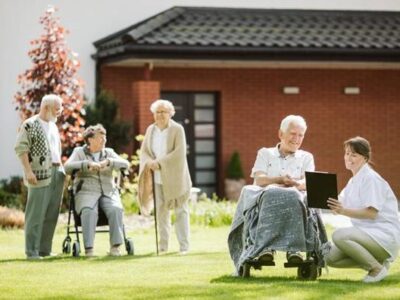Eating healthy is important at every age, but it becomes even more important as we get older. Good nutrition helps seniors stay strong, feel better, and have more energy.
There are many nutrition programs designed to help seniors eat the right foods for healthy aging. These programs provide support, meals, and guidance for seniors to get the nutrients they need.
The Importance of Nutrition for Seniors
As we age, our bodies change. Our metabolism slows down, and we may not feel as hungry as we used to. This can make it harder to get the right nutrients.
Seniors also need more of certain vitamins and minerals, like calcium and vitamin D, to keep bones strong.
Eating the right foods can also help prevent health problems like heart disease, diabetes, and high blood pressure. Good nutrition can improve mental health, too. It helps with mood, memory, and overall brain function.
Meal Programs for Seniors
One of the most helpful senior nutrition programs is meal delivery. Many organizations offer home-delivered meals to seniors who are unable to cook for themselves. These meals are often designed to meet the dietary needs of older adults.
For example, meals may be low in salt, high in fiber, or include extra calcium and vitamin D.
Meals on Wheels is a popular program that delivers hot meals to seniors. It helps make sure seniors have access to nutritious food. Many local communities offer similar services.
Nutrition Education for Seniors
In addition to meal programs, there are also nutrition education programs for seniors. These programs teach seniors about healthy eating habits, portion control, and how to make easy, nutritious meals.
They may offer classes, workshops, or even one-on-one counseling. Learning about food can help seniors make better choices and feel confident about their diets.
Some nutrition programs focus on teaching seniors how to eat for specific health conditions. For example, some programs help seniors with diabetes choose foods that control their blood sugar. Others focus on heart-healthy diets for seniors with high blood pressure.
Additionally, some offer special diet menus for senior health to ensure that meals meet the unique needs of each individual. These programs provide valuable information to help seniors improve their health through food.
Supplemental Nutrition Assistance
Another helpful program is the Supplemental Nutrition Assistance Program (SNAP), also known as food stamps. This program helps low-income seniors buy healthy food. It can be a big help for seniors who may not have enough money to buy nutritious groceries.
Grocery stores, farmers’ markets, and some online merchants accept SNAP benefits. Many seniors use SNAP to help buy fresh fruits, vegetables, and other healthy foods.
Social Support and Meals
Eating with others can also improve a senior’s health. Many senior centers and community groups offer meals in a social setting. This not only helps seniors get a good meal but also gives them the chance to connect with others.
Socializing during meals can improve mood, reduce feelings of loneliness, and support mental well-being.
Empowering Seniors Through Nutrition for Healthy Aging
Good nutrition is essential for healthy aging. Seniors who have access to meal programs, nutrition education, and support can make healthier food choices. Whether through meal delivery, education, or financial assistance, these programs can help seniors stay healthy, strong, and happy as they age.
By eating the right foods and getting the right support, seniors can enjoy a better quality of life and maintain their independence.
See our blog for more on this material!
If you want morе еxciting contеnt visit. Globallyviz.com














Comments